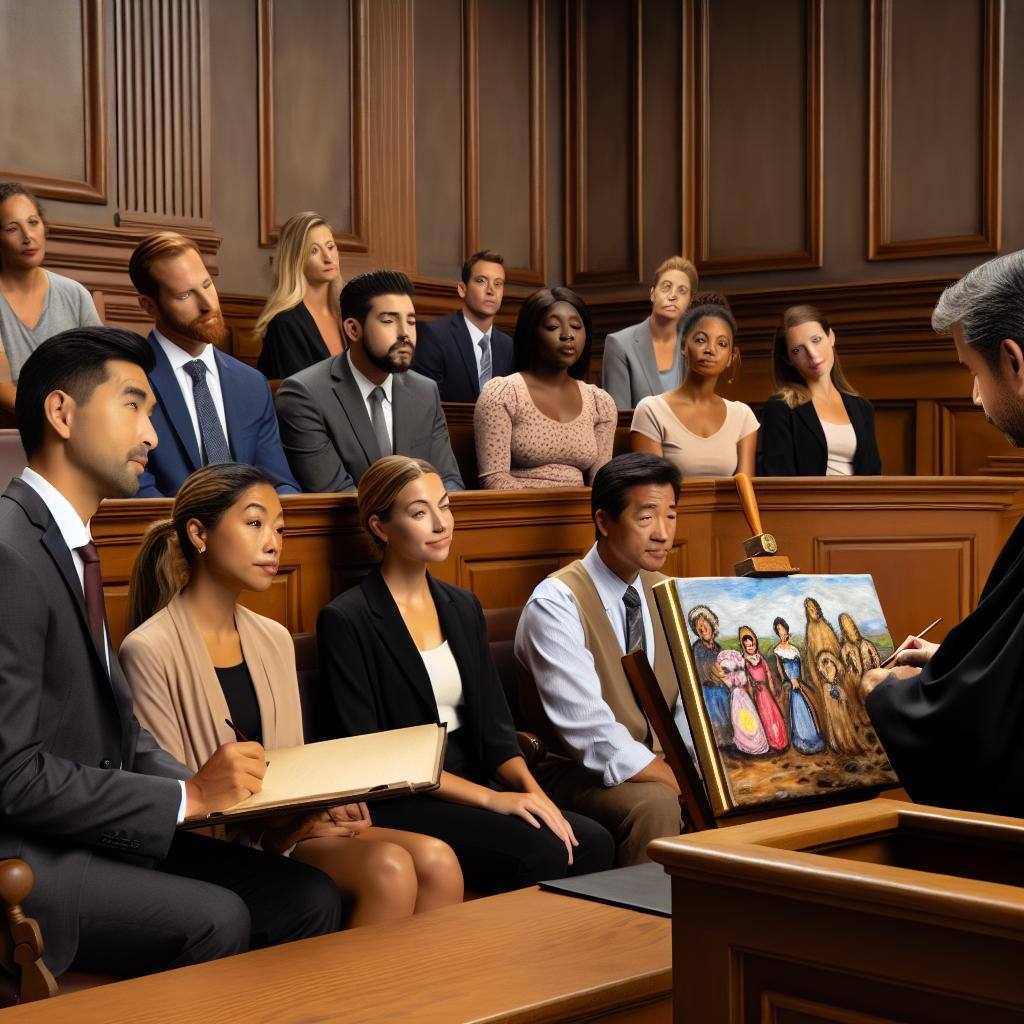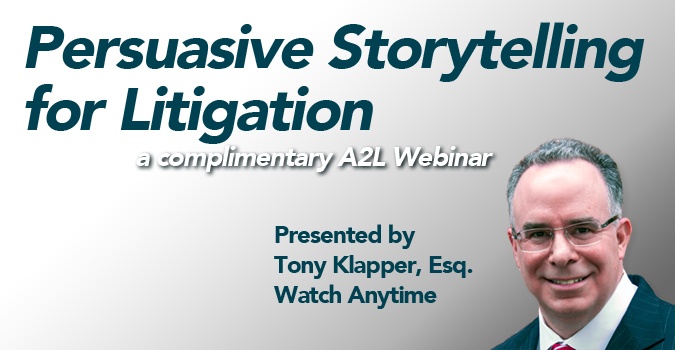Storytelling, an age-old art form, has the remarkable ability to breathe life into dull legal cases, turning them into compelling and unforgettable stories. While you may not be able to physically illustrate a scene for the jury, you can certainly paint a vivid mental picture—and you absolutely should if you aim to enhance your powers of persuasion.
The Power of Narrative in Legal Contexts
Crafting a compelling narrative in legal arguments requires meticulous attention to detail that goes beyond simply presenting facts and evidence. It involves skillfully weaving together a storyline that captivates the audience, leading them on a journey through the complexities of the case. This entails setting the scene with a clear beginning and delving into the nuances of conflicts and challenges that arise, building tension and intrigue along the way.
Trial lawyers have a unique talent for bringing the legal argument to life by incorporating characters, settings, and plotlines that resonate with the jury. Each element of the story must serve a purpose, enhancing the legal points and reinforcing the overall argument rather than distracting from it. By grounding the narrative in the reality of the case, lawyers can create a compelling and immersive experience that draws the audience in and keeps them engaged until the very end.
Emotional Engagement: Connecting with the Jury
Lawyers have a unique opportunity to connect with the jury on an emotional level by crafting a narrative that resonates with universal emotions. By tapping into the jurors' values, hopes, and fears, attorneys can create a compelling story that evokes empathy for their client's situation and sparks outrage at any perceived injustices.
The power of storytelling lies in its ability to engage the jury's emotions, making the case more memorable and impactful. However, it is crucial for lawyers to strike a delicate balance between emotional appeal and factual integrity. While emotions can sway the jury's decision, it is essential to maintain credibility by ensuring that the emotional narrative aligns with the factual evidence presented in the case.
A well-crafted narrative that strikes the right emotional chords can be just as influential as a strong legal argument. By understanding the audience and tailoring the story to their emotional triggers, lawyers can increase their chances of winning over the jury and achieving a favorable outcome for their clients.
Case Studies: Successful Storytelling in Courtrooms
Storytelling plays a pivotal role in the courtroom. Legal scholars and practitioners often cite cases where a narrative approach significantly changed the outcome. In our practice, examples of storytelling success are frequent. See $300 Million of Litigation Consulting and Storytelling Validation and Three Top Trial Lawyers Tell Us Why Storytelling Is So Important.
These case studies testify to the effectiveness of storytelling in legal arguments when applied judiciously and skillfully. They offer valuable lessons on the dos and don'ts of legal storytelling and underscore the importance of narrative in winning cases. Use language that evokes emotions to paint a clear picture for a jury.
For many more examples of storytelling success at Persuadius, see the linked articles below, and watch a free storytelling webinar.
Other Persuadius articles and resources about storytelling, building a narrative, surprise, and other persuasion techniques include:
- What is Litigation Consulting and What Do Litigation Consultants Do?
- Help - I'd like to run a confidential conflicts check or just get in touch with Persuadius
- Three Top Trial Lawyers Tell Us Why Storytelling Is So Important
- Repelling the Reptile Trial Strategy as Defense Counsel - Part 1
- [New Webinar] 5 Ways to Maximize Persuasion During Opening Statements
- Storytelling for Litigators E-Book 3rd Ed.
- FREE Webinar: Storytelling for Litigators
- 5 Essential Elements of Storytelling and Persuasion
- 5 Keys to Telling a Compelling Story in the Courtroom
- Why Trial Graphics are an Essential Persuasion Tool for Litigators
- Ten Ways to Maximize Persuasive Courtroom Storytelling (Part One)
- Netanyahu Persuades and Presents Better Than Most Trial Lawyers
- What Trial Lawyers Can Learn From Russian Facebook Ads
- How to Use the Principles of Advice-Giving to Convince a Jury
- The Key Elements of a Good Narrative – at Trial or Anywhere Else
- Still Think Persuasion is About Talking While Showing Bullet Points?
- Using Visual Persuasion to Emotionally Move Your Audience






Leave a Comment